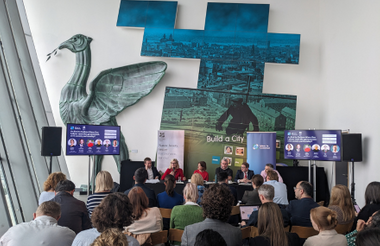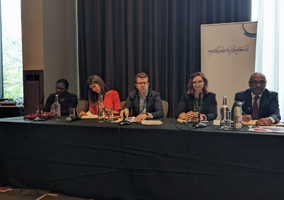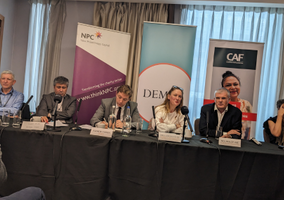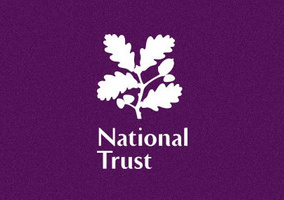A backbench Labour MP has said that the new government can “set the tone and turn down the temperature” on culture war issues and reaffirmed plans to “reset the relationship with civil society”.
Tom Rutland, elected as an MP in the general election this year, told delegates at the Labour Party conference that the previous government seemed to be “at war with everybody, pouring fuel on the fire”.
Rutland was speaking at a fringe event on the role of the government in ending culture wars and resetting its partnership with civil society.
National Trust’s director-general Hilary MacGrady, who also spoke at the event, said “any thriving country needs a thriving civil society” and it seems “absurd” that any government would try to undermine it.
Resetting the partnership with civil society
Rutland told delegates that the country’s politics has been “incredibly harsh for a long time” and even “nasty at times”.
“As a Labour MP, me and government as a whole can set the tone, I hope, and turn down the temperature,” he said.
“That’s much needed because it felt at times that the last government was at war with everybody, pouring fuel on the fire and trying to whip people up against a new supposed enemy each week.”
Rutland cited recent media stories including on the National Trust’s vegan scones, saying: “We’ve all seen the absurdity of taking on the tearooms at the beloved National Trust properties for supposedly going woke by using a vegan recipe for their scones when it turns out they’ve been doing so for years without a complaint.”
He said the government needs “a relentless focus on growing the economy and improving our public services in a way that voters can feel”.
“The good news is, that’s what we’re doing. No more sticking plasters or division, but a mission-driven government focused on a decade of national renewal,” he said.
“When we engage on issues that have been a battlefield in recent years, we do so in a way that can potentially rile people up, but aims to find solutions that recognise our common humanity.”
The government intends “to reset the relationship with civil society” to achieve its missions, Rutland added, including by consulting religious and community organisations on the development of its child poverty strategy and by charities supporting people to get back into work.
“Civil society has a key role to play in delivering every one of our missions and a partnership means civil society organisations being able to speak up on behalf of the people they serve and push us to do better too,” he said.
Media misinformation is ‘breathtaking’, says National Trust boss
Delegates heard about National Trust being on the front line in culture wars, including when the charity featured in an article on a “woke-row deer park’s kinky dogging shame”.
MacGrady said her organisation “almost made a joke” of that example, trying to turn it into a conversation rather than war.
“The media, it’s beyond me what to do to some degree because the misinformation is just breathtaking,” she said.
“In terms of how we have navigated [this], in the early days we went on the defence and there was a particular moment where there was a piece written which was just complete nonsense and we said: ‘That’s just wrong, you’re not telling the truth there.’
“And we started to push back in a very systematic [way] every time there was something untruthful.”
During the discussion, she admitted that there might be a discrepancy between the views of her staff and volunteers and those of the public.
“The reality is, and I’m sure this is quite common with a lot of civil society organisations, I’d say that 70% of my staff and volunteers would be regarded as progressive activists,” she said.
“So, when I have a workforce of people who really want to push on this and then I have a membership base – I wouldn’t want to characterise my members as being particularly conservative, they’re actually not – there’s a dynamic that I as director-general need to be really aware of that my organisation is pushing very hard on one side but actually I need to be very aware of how the public is receiving that.”
She added that it is crucial to be “open, honest and up for debate” because a lot of these issues, particularly in her sector, “are really sensitive and people do have legitimate questions to ask”.
“[You] should be able to stand up and have that conversation, which is why I’m really strongly of the view that people should be able to voice their concerns,” she said.
Related articles












